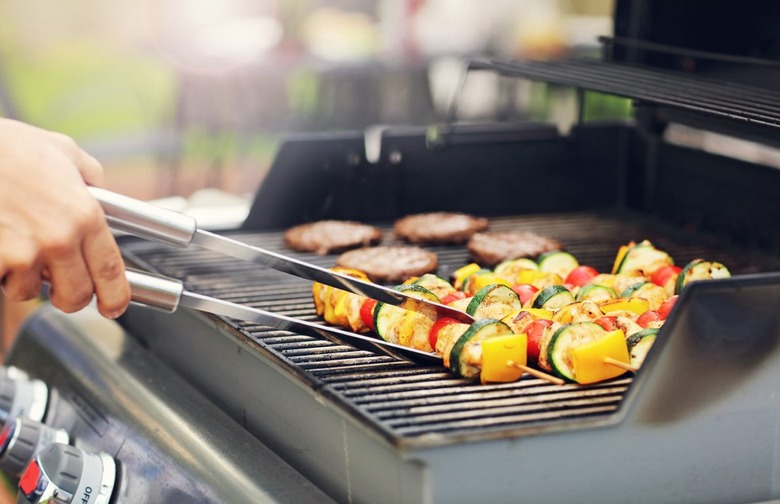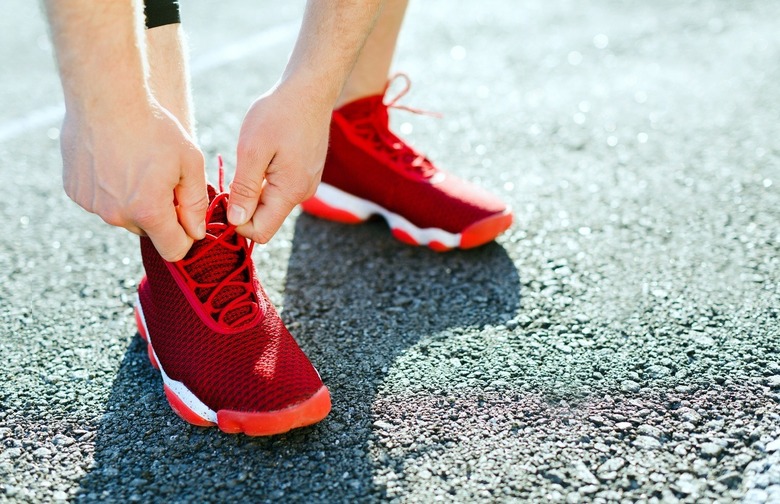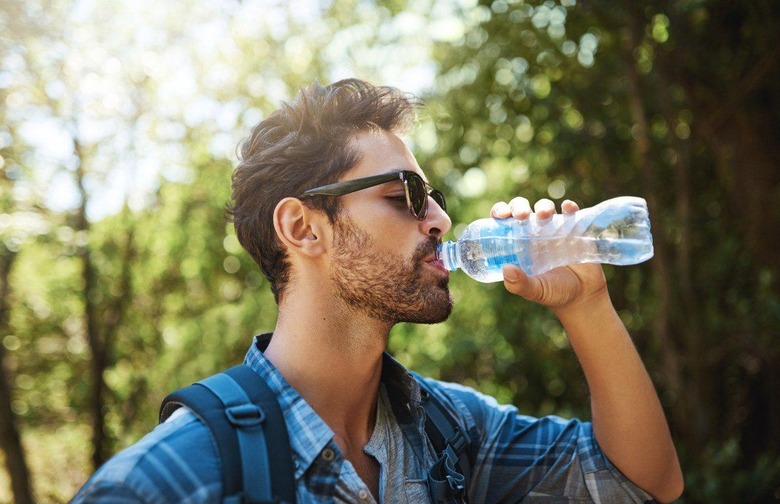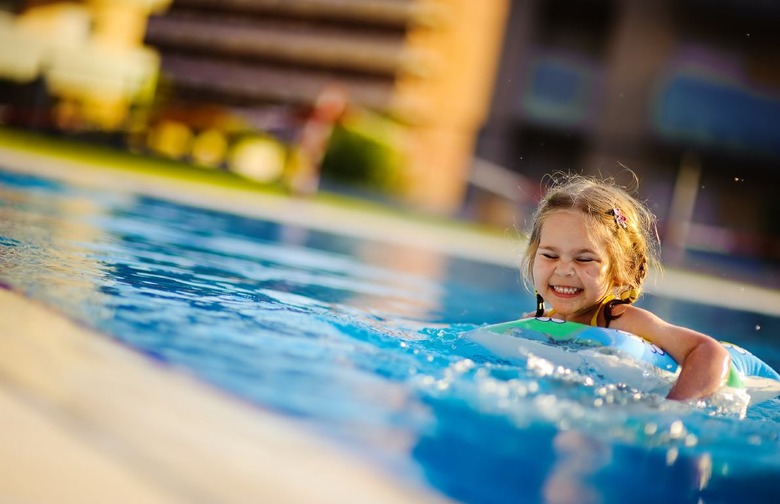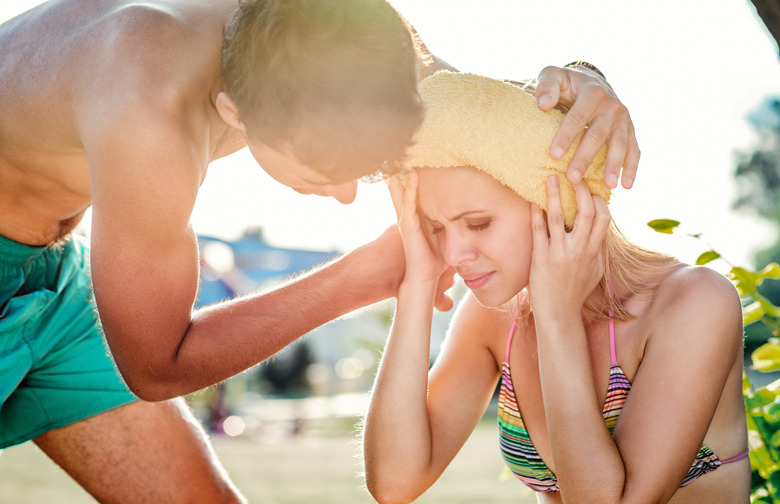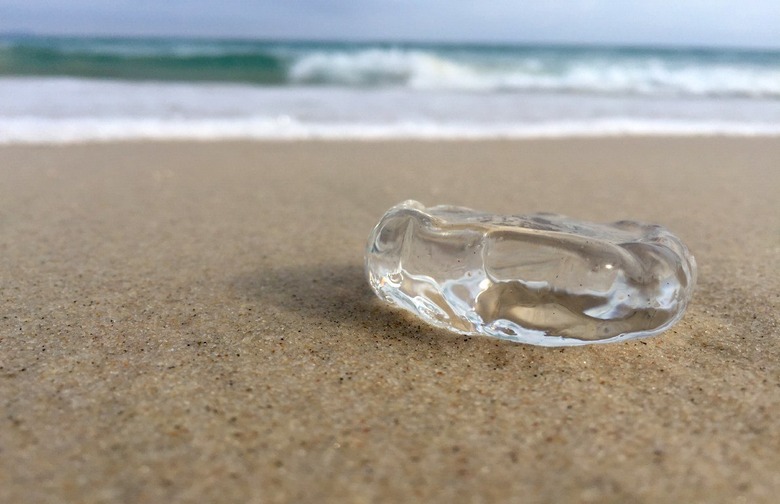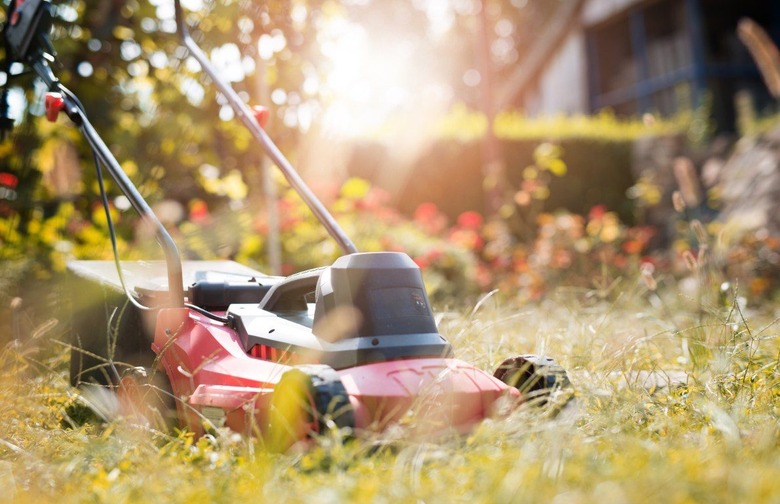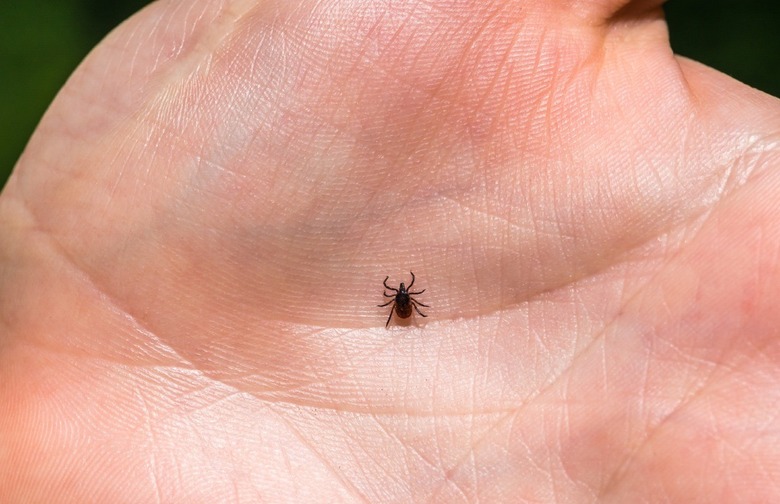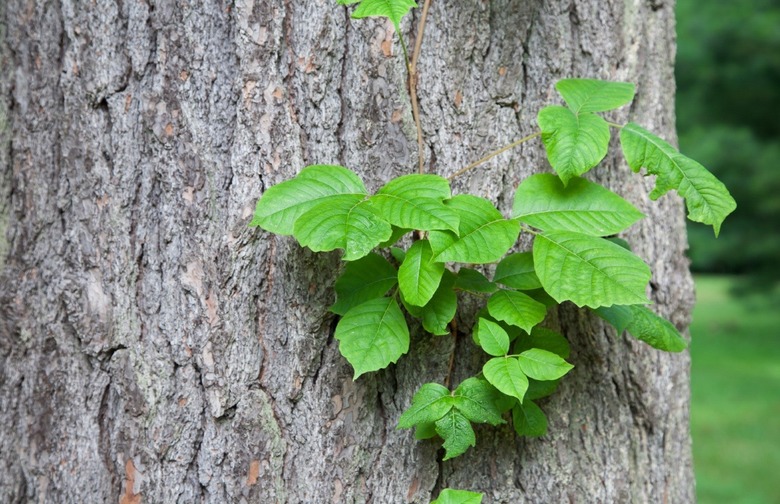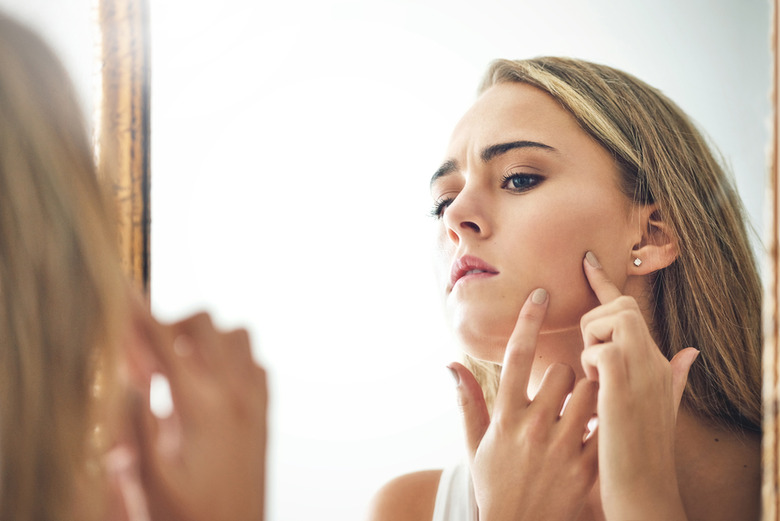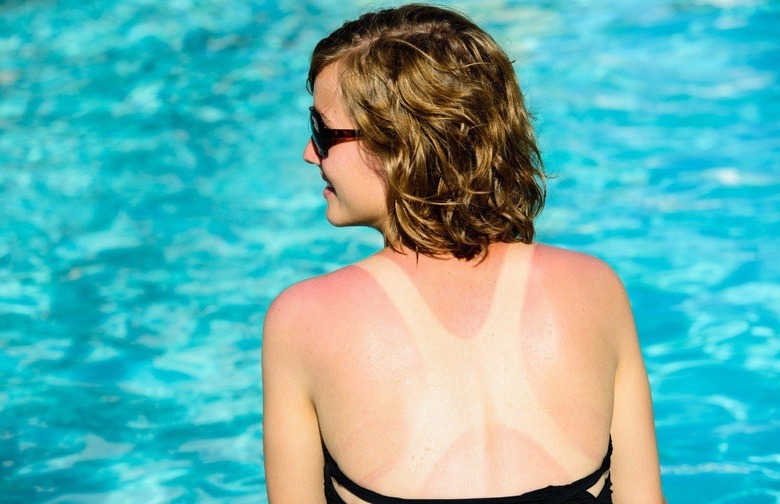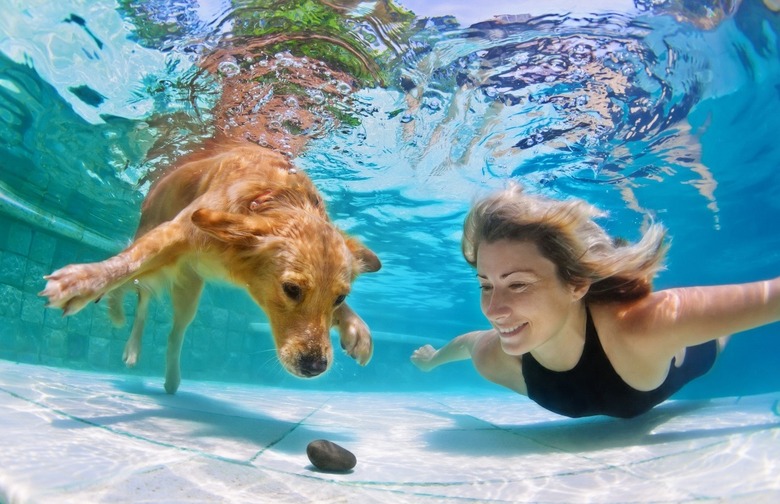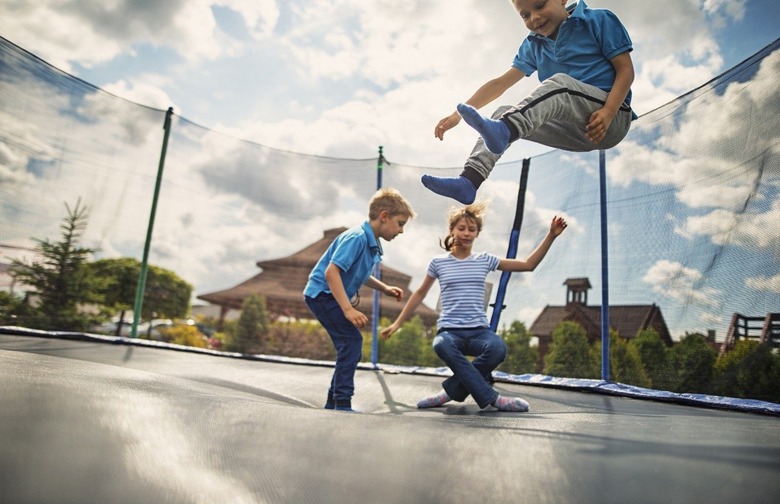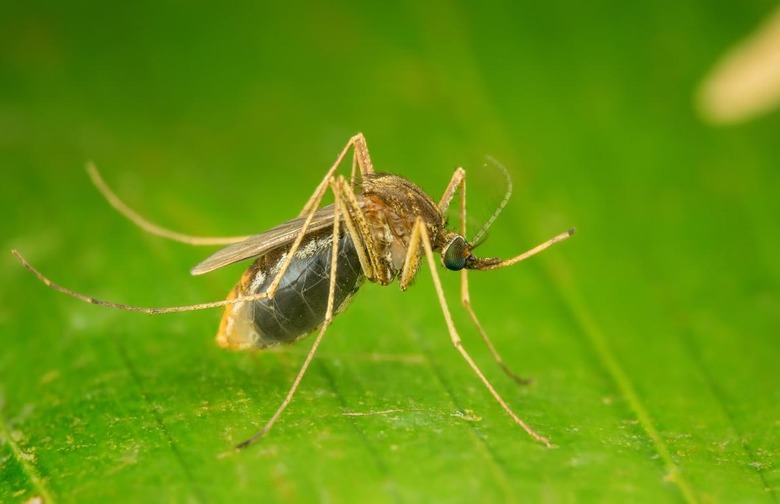The 25 Biggest Summer Health Hazards And How To Avoid Them Gallery
The summer season conjures up memories of grilling, stupendous lobster rolls, cheap beer, swimming holes, and, my personal favorite, being lulled to sleep by the soft clap of waves falling to the shoreline. But summer isn't all fun in the sun.
Summer motivates us to leave the house, hop in the car, and go on an adventure; but this inevitably raises our risk of sunburn, jellyfish stings, or a boating accident. Summer is a time to get outside and enjoy the weather, but these health hazards can get in the way. Identifying the season's great risk factors will allow you to properly prepare for anything summer will throw at you and still have a great time without placing yourself in peril.
These particular hazards vary in degrees of danger and risk. Despite the wide range of potential accidents, every activity becomes more dangerous when alcohol is involved, so restrict your drinking to the bar or backyard. Drinking in the sun is more dangerous than you think.
You'll probably get sunburned, have a bout with athlete's foot, or get bitten by an insect. These hazards are hard to completely avoid. But it's doubtful you will fall victim to a bear attack or drown. Here are the 25 biggest summer health hazards and how to avoid them.
Athlete’s Foot
You don't have to necessarily be an athlete to get this fungal skin infection. Athlete's foot occurs when your foot comes into contact with the fungus; either from someone else shedding infected skin in communal areas or from walking around outside barefoot. Once your skin is contaminated, the dark, moist, warm areas inside shoes and socks exacerbate the problem and allow the fungus to grow. Sandals aren't much better; they tend to dry out the foot's natural oils, making it more prone to infection. To avoid athlete's foot, keep your feet clean, and dry them thoroughly after going in the water. Although sandals aren't perfect, they are a better alternative than sweaty shoes.
Bears
Comedian and late-night talk show host Stephen Colbert once described bears as "godless killing machines," but these powerful creatures are only dangerous in certain scenarios. Bears are active during the early morning and late evening hours of the spring and summer, and are very protective of their offspring. Bears stand on their hind legs when they are trying to identify scents and sights, but when they are all on fours with their heads lowered, watch out — they are getting ready to charge. Bears are especially attracted to certain objects, so avoid taking these items to your campsite.
Bee Stings
Honey is a great healthy way to sweeten coffee, but the bees it attracts aren't always as sweet. Bee stings leave behind a venomous toxin that causes itching, pain, and swelling. For those who are allergic to bees, the reaction can be even worse. If you get stung, try rubbing a paste of baking soda and water on the wound to neutralize the bee venom.
Bicycle-Related Injuries
According to the Centers for Disease Control and Prevention, over 900 bicyclists were killed in the United States in 2013. An estimated 494,000 emergency room visits also occurred because of bike-related injuries. As much as you may just want to ride your bicycle (and ride it where you like), it behooves you to wear a helmet and follow proper biking safety protocol while riding around — in every season, not just summer. Try drinking a cup of coffee before your next workout to stay energized.
Boating Accidents
According to the U.S. Coast Guard, most boat-related fatalities come as a result of victims not wearing their life vests. The main causes of boating accidents include operator inexperience, operator inattention, faulty machinery, and travel at excessive speeds. Alcohol is also a main contributor in boating accidents and deaths. Instead of booze, bring these nonalcoholic beverages on your next boating trip.
Dehydration
Increased thirst, signs of fatigue, blurred vision, headaches, and muscle cramps are all indicators that you may be dehydrated. Drink lots of water during the scorching summer months, but also experiment with coconut and aloe water, which are equally (or sometimes more) hydrating.
Drowning
Drowning is one of the top five leading causes of accidental deaths in the United States. An inability to swim is the leading risk factor. Alcohol consumption also ups the risk of drowning, so leave those Bud Lights and piña colada smoothies at home when you head to the beach or the pool.
Eye Damage
Looking for a reason to splurge on a more expensive set of shades this summer? If you buy cheap sunglasses without proper UV protection, you'll be opening up your pupils by making things darker and allowing more eye-damaging UV rays in. Investing in a pair of sunglasses with 100 percent protection from UV rays is probably your best bet. You can also eat your way to better eye health by eating more carrots, blueberries, and other foods that improve your eyesight. But if you're spending a lot of time on the water, consider looking for a polarized lens as well.
Extreme Heat
Extreme heat is defined as several weeks of weather 10 degrees or more above the average high temperature for the region. So "extreme heat" in Florida isn't going to feel the same as "extreme heat" in Maine. During extreme heat wherever you live, it's critical to drink plenty of water throughout the day even when you're not thirsty. Nutritionists have different ideas about how much water you really need, but getting as much water as you can is probably a good idea. If you do decide to venture outside, don't leave pets or children in the car during these heat waves, and make sure you are equipped with a hat and are fully slathered with sunblock — even on these occasions when it's easy to forget!
Fireworks Injuries
Imagine how silly you'd feel telling the ER doctor that your hand was blown off because you were playing with fireworks. Those who don't have proper fireworks knowledge are at a high risk of injury from using them improperly. We suggest leaving the pyrotechnics to the professionals and enjoying the show safely from one of these bars and restaurants where you can watch fireworks.
Food Poisoning
Aunt Debbie's potato salad looks delicious, but tucked away beneath the mayonnaise, celery, and potatoes are some potentially dangerous bacteria. Some foods are more likely to make you sick than others, and the leafy greens in summer salads are one of the riskiest foods you can buy. Plus, the summertime heat raises the risk of foodborne illness because food inevitably spends more time in the bacteria "danger zone," which the U.S. Food Safety and Inspection Service defines as between 39 and 140 degrees Fahrenheit. Keep perishable foods on ice (or just eat them before they warm up) and practice these other tactics to avoid food poisoning.
Grilling Injuries
According to The National Fire Protection Association, 9,000 home fires are caused by grilling accidents each year. Although people grill all year round, grill-related fires peak in July. Failing to clean the grill grates raises the risk of the entire unit catching fire. Never forget to clean your grill, and never make these other dangerous mistakes, either. If worried about starting a fire (or undercooking your chicken), here are some useful tips for grilling safety.
Jellyfish Sting
For such a soft and flimsy animal, the jellyfish packs quite a punch. When they sting, their tentacles inject you with venom from their thousands of microscopic barbed stingers. If someone is stung by a jellyfish, get them out of the water immediately. Wash the affected area with seawater or rinse with vinegar (click here to learn about the many other amazing uses for vinegar) for 30 seconds to nullify the stinging cells. You can also remove the barbs by scraping the wound with a credit card or other plastic object.
Lawn Mower Injuries
Lawn mowers can be fun to ride, but they can also easily sever an appendage. Toes, hands, fingers, and limbs can get caught in the blades if you're not careful. Don't tinker with your lawn mower or chainsaw, and if you don't know how to use a stump grinder, please stay far, far away from it while it's in use.
Lightning Strike
It's unlikely that you will be struck by lightning this summer season, but you should be prepared nonetheless. It's not safe to be anywhere outside during a lightning storm, but boats, swimming pools, and beaches are especially treacherous. During a lightning storm, search for shelter inside a completely enclosed building; if one is unavailable, find a hard-topped metal vehicle instead. If the vehicle does get struck by lightning, the rubber of the tires will eliminate any danger of electrocution.
Lyme Disease
A bite from a blacklegged tick can transfer the bacterium Borrelia burgdoferi, which leads to the development of Lyme disease. Ticks are abundant during the warm summer months, and are likely to latch on to bare skin as people hike, picnic, and camp outdoors. To prevent a tick bite, use insect repellent and spray some low-intensity pesticides over your most traveled areas. Tick bites don't always result in Lyme disease; in some rare cases they can even transform you into a vegetarian (for real).
Poison Ivy
About 85 percent of people who touch poison ivy, sumac, and oak develop a rash, according to the American Academy of Dermatology. It affects millions of Americans annually, and the only way to completely avoid risking poison ivy without leaving the country would be to isolate yourself in Alaska or Hawaii. Though now that you mention it, a trip to Hawaii doesn't sound half bad... If irritated by poison ivy, rubbing some vodka on the rash may soothe it.
Puncture Wounds
Walking around barefoot is one of summer's greatest pleasures, but going shoeless also opens you to up to extra risks. Any jagged rock, shard of glass, or exposed nail could earn you a trip to the emergency room. In uncertain areas, try to wear sandals or hard-soled shoes, and do your best to look before you step.
Sexually Transmitted Diseases
Summer is the season of love, but it is also the season of STDs. Research says that there is increased sexual activity among people between the ages of 15 and 24 during the summer months. Always protect yourself when having sex, and regularly go for STD screenings even if you don't have any obvious symptoms.
Skin Breakouts
Contrary to popular belief, sweat doesn't actually clog your pores. It does, however, contribute to pimples and blackheads, as can the foods you choose to eat. One diet-based remedy for this comes in the form of eating plenty of foods that normalize the sebum, an oily substance that helps protect the skin, on your face. Those of us who produce higher levels of sebum have more oily complexions. Load up on fresh vegetables, omega-3 fatty acids, and lean protein, and drink plenty of water. These are just a few of the ways you can fight bad skin with food and drink. If you have dry skin, rather than oily skin, you might want to try one of these food-based remedies.
Sun Stroke
Sun stroke or heat stroke occurs from extreme exposure to heat and sunlight, and it's considered a medical emergency. Heat stroke is prevalent in adults over the age of 50, and can actually cause permanent damage to the brain. Symptoms of heat stroke include a throbbing headache, dizziness, lack of sweating despite heat, and nausea and vomiting. If you're feeling nauseous for this reason or another, try sipping on one of these stomach-settling teas.
Sunburn
There's a delicate balance between bronzed and burnt, but it only takes a few extra minutes of sun to do some serious damage to your skin. The sun can do damage above and below the skin, but both forms can age skin prematurely and contribute to skin cancers. To get a natural tan — without the harmful sun exposure — eat these foods. And for the sake of your skin, don't forget to wear sunblock!
Swimmer’s Ear
Swimmer's ear, an ailment known to year-round swimmers and summer-only swimmers alike, is caused when water enters the ear canal and becomes trapped by ear wax. In more serious cases, it can lead to an ear infection. If you find yourself afflicted by swimmer's ear, try applying tea tree oil, grapefruit seed oil, garlic-infused olive oil, or a mixture of rubbing alcohol and white vinegar to your ear. Lie sideways, allowing the mixture to sit in your ear for a few minutes, and then flush it out with warm water.
Trampoline Injuries
Between 2002 and 2011, there were more than one million trampoline-related injuries reported in emergency rooms across the United States. If you'd like to avoid bruises, strains, sprains, fractures, and dislocations, especially if you have young children, be sure to enact and follow strict trampoline safety protocols at your home.
West Nile Fever
Between 1999 and 2012, 2,648 West Nile cases were reported to the Centers for Disease Control and Prevention each year on average. In 2013, all 48 contiguous states (and the District of Columbia) had confirmed cases of West Nile, but Midwestern and Southern states had higher rates of incidence. Exposure to the virus can lead to a serious neurological infection that can cause brain inflammation, and those older than 50 or with a weakened immune system are the most likely to develop such an infection. How can you stay a bit safer? Avoid these 9 foods that make you tastier to mosquitoes.
More from The Daily Meal:
Destinations You Should Only Visit in the Summer
The Foods to Eat This Summer for Shiny Hair
